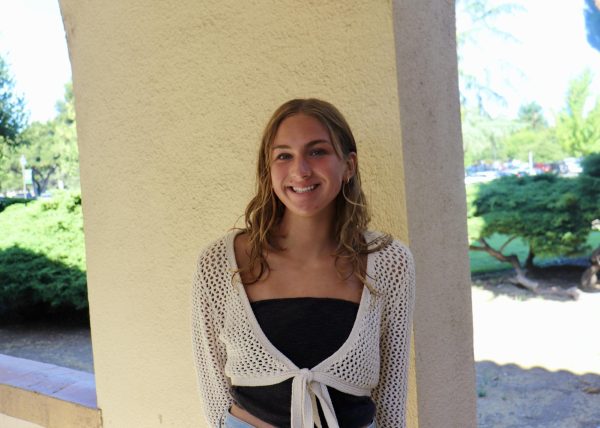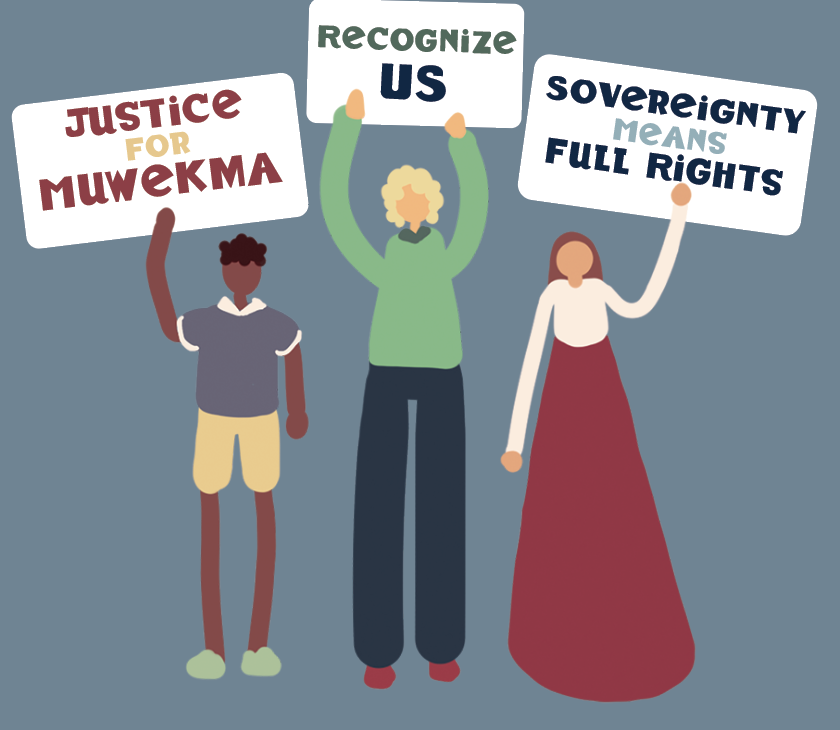Acknowledgement to Action
Beyond the history of indigenous tribes, listening to those within the communities provides an opportunity to spark change.
Whether it be a verbal statement or sign posted on a building, the presence of indigenous land acknowledgements is becoming far more commonplace. A land acknowledgement is a formal statement that the land being used by current occupants was previously inhabited by indigenous peoples.
While this acknowledgement has benefits such as bringing awareness to the issues, it raises questions regarding the value of these acknowledgements. Many question whether creating a land acknowledgement is actually productive. This also leads people to wonder what more needs to be done to obtain some form of justice for these indigenous communities who had their land stolen from them.
For starters, it is important to take into account that land acknowledgements themselves play a crucial role in getting the conversation regarding past injustices to indigenous communities started.
“Acknowledging historical injustice and spending the time to acknowledge the reality of the situation of where we are, as well as protecting the authorization of the people who have given us so much through their land is tremendously important,” Dmitrius Rodriguez, a corpsmember working with Grassroots Ecology, said.
Grassroots Ecology is a local organization working to engage and educate the public about restoring local ecosystems, and within that process, Rodriguez believes it is vital to learn from indigenous communities.
“We are so disconnected from traditional ecological knowledge because of capitalism and colonialism,” Rodriguez said.
Along with a need for traditional ecological knowledge to be restored, there is also a large need for the public to be open to hear from new perspectives.
“Doing a land acknowledgment, and it has been continuously said over and over, isn’t enough,” Rodriguez said. “It is just the start of creating an educational environment for people to learn more and hear from indigenous voices.”
Specifically, there is great significance that comes along with hearing voices within indigenous communities because of tribes’ deep history of being taken advantage of. There is also very little awareness amongst the general public about the current issues occurring.
“Learning history from diverse perspectives is very important,” Rodriguez said. “Any type of history you are learning has a bias to it and getting more perspectives is the only way that you can acknowledge bias.”
One local tribe in particular, the Muwekma Ohlone Tribe, is still facing the struggles brought on by the dark history of western expansion.
According to the Muwekma Ohlone Tribe’s website, before western influence, the Muwekma Ohlone people resided in counties including: San Francisco, San Mateo, Sangta Clara, Almeda, Contra Costa, parts of Napa, Santa Cruz, Solano and San Joaquin. However, from 1776 to 1836, they were influenced, through a process of westernization in social, religious and cultural areas, by the Missions’ Dolores, Santa Clara and San Jose.
Today, the Muwekma Ohlone Tribe consists of over 600 tribal members which is a significant decrease compared to the estimated 300,000 native people before European contact, according to a 2023 article in the Stanford Daily.
“It is important to not perpetuate the cycle of projection onto these groups of people who have a voice for themselves” Rodriguez said.
To reduce this cycle of projection, one where the history of indigenous people has been consistently wrongly told, hearing from individuals within the Muwekma Ohlone Tribe is crucial to accurately finding out what needs to be done for those within the community. To accomplish this, chairwoman of the Muwekma Ohlone Tribe, Charlene Nijmeh, speaks on current events.
“I always say that [land acknowledgements] are a first step but more needs to happen, especially federal acknowledgment,”
Charlene Nijmeh
By saying “federal acknowledgement,” Nijmeh is referring to the process of getting the tribe’s federal recognition restored.
“We need everyone’s support, and that is what is important to Muwekma,” Nijmeh said. “Getting our status restored and having a land base where our youth can be protected from being gentrified from our homeland.”
The process of federal recognition is one where the United States government recognizes the rights of a tribe to exist as a sovereign entity, referring to the right for them to govern themselves. This has been an undertaking the Muwekma people have been pushing towards for over forty years.
“It is as simple as Deb Haaland, the Secretary of the Interior, writing a letter and saying ‘we made a mistake and we’re going to correct that mistake and put you back on the 1978 list of recognized tribes,’” Nijmeh said.
The process, although described by Nijmeh as “simple,” is overcomplicated by many politicians causing slow progress in the direction towards recognition. The process of recognition has had many twists and turns for the Muwekma tribe.
On May 24, 1996, the Bureau of Indian Affairs (BIA) confirmed that the tribe existed between 1914 and 1927. However, they failed to determine that the community existed between 1927 and 1985, even with evidence demonstrating otherwise.
Since then, Nijmeh has been attempting to work with government representatives towards recognition but has faced issues along the way. In particular, they have struggled with miscommunications regarding gambling and sovereignty.
“What [politicians] are asking us to do is give up a piece of our rights for future generations,” Nijmeh said.
Although, current council and administration within the tribes have no involvement with gaming, they believe that it is within their right to allow future generations to make the decision for themselves regarding economic development.
“You stole our land, you ripped us from our language and culture,” Nijmeh said. “Now you want to take more away from us,”
With these frustrating complications, Nijmeh looks to younger generations as a driving force for advocacy and change.
“They are the loudest out there saying, ‘pay attention to this group that has been struggling for forty years to get their status restored’” Nijmeh said.
This advocacy is mostly due to fearlessness of the young people speaking out.
“They are the gamechangers nowadays,” Nihmeh said. “They see what’s happening and they see the injustice and they are speaking out because they feel like they have nothing to lose”
This rise in awareness among the youth may lead one to question the power that an individual can have on such a daunting task, Jonathan Michelangelo Lockwood, spokesperson for the Muwekma Ohlone Tribe, suggests.
“They’re [youth] actually more powerful than lobbyists because their voices are stronger than any dollar amount when we unite and stand up for a cause, especially like we’re seeing in the Bay Area,”
Jonathan Michelangelo Lockwood
Furthermore, events and protests are being held within the Bay Area in support of the tribe.
“It has been really impressive to see how much the community has come together and it has really been led by the youth, the students that really understand these issues and the need for the Bay Area to right the wrongs of the past,” Lockwood said. “Because really, to deny Muwekma is to deny the California genocide that was led by the California government.”
Peter Burnett, the first elected governor of the state of California, commanded to wage a war of extermination until all indigenous people were wiped out by signing the Act for the Government and Protection of Indians in 1851. This piece of legislation played a crucial role in the California genocide, in which thousands of indigenous Californians were killed or enslaved by white settlers during the Gold Rush.
“As students are learning about this, they are beginning to say ‘no more,’” Nijmeh said. “We need to have discussions out in the open so we all know what is happening.”
Discussions and more open education regarding about indigenous history is especially important while learning about the truth.
“There is still room to learn more,” Rodriguez said. “There are so many people that are willing to teach you more and those people will not be around forever. There is just a wealth of knowledge and we’re slowly moving into a time where we might not have access to that same type of knowledge. It’s the same idea over and over again, where marginalization increases inequality and inequities.”
Getting involved and working directly with indigenous tribes is an essential role in one’s continuous education and awareness of issues within marginalized communities.
“A lot of local Bay Area organizations would love to have young people spend time with them,” Rodriguez said. “If they’re inviting the public to come out, that is an incredible opportunity to learn and really shows that you care about the issues.”

2022-2023 Staff Writer
2023-2024 Managing Editor
I joined C Mag as a way to express my creative side and advocate for subjects I am passionate about....







